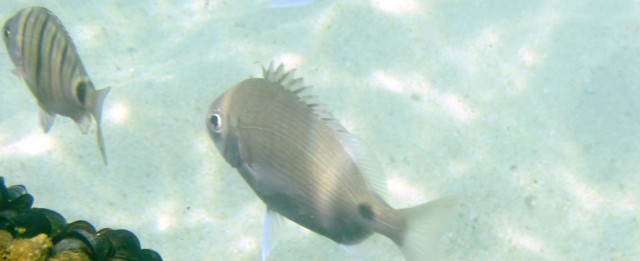Overview
Coastal ecosystems such as lagoons and estuaries are of essential biological, social and economic value yet they face severe exposure to microplastic (MP) particles as a result of riverine input and increasing urbanisation.
At this gateway of MP to the global ocean, certain habitats such as seagrass meadows play a central role as nursery grounds for a variety of fish species – many of them of commercial importance for fisheries and aquaculture. Though MP uptake and its potential impacts have been documented for a number of fish species, comprehensive studies on early life stages of fish, showing a high site fidelity and depending on their nursery habitats, are lacking. As larval and juvenile fish are the bottleneck of population development, more emphasis needs to be laid on potential effects of MP for growth and condition in order to assess potential implications for recruitment and population dynamics of coastal fish stocks.
IMErSÃO aims to evaluate the impact of MP on growth, development and survival of early life stages of seabream (family Sparidae) in different coastal ecosystems across the Atlantic Ocean.
The project is a combination of in-situ studies of wild populations in essential coastal habitats across the temperate (Portugal) and tropical (Mauritania, Senegal) Atlantic Ocean and laboratory feeding experiments, along with histological and chemical analyses.
This project is expected to contribute to the understanding of fish-habitat-interactions and the effects of MP pollution and habitat parameters on recruitment and population dynamics on a species-specific scale.
Project Partner |
|---|
|
CCMAR (Faro, Portugal) |





